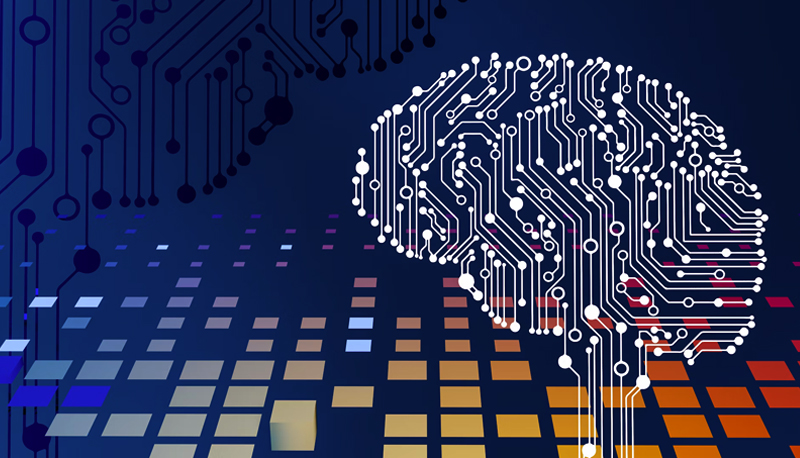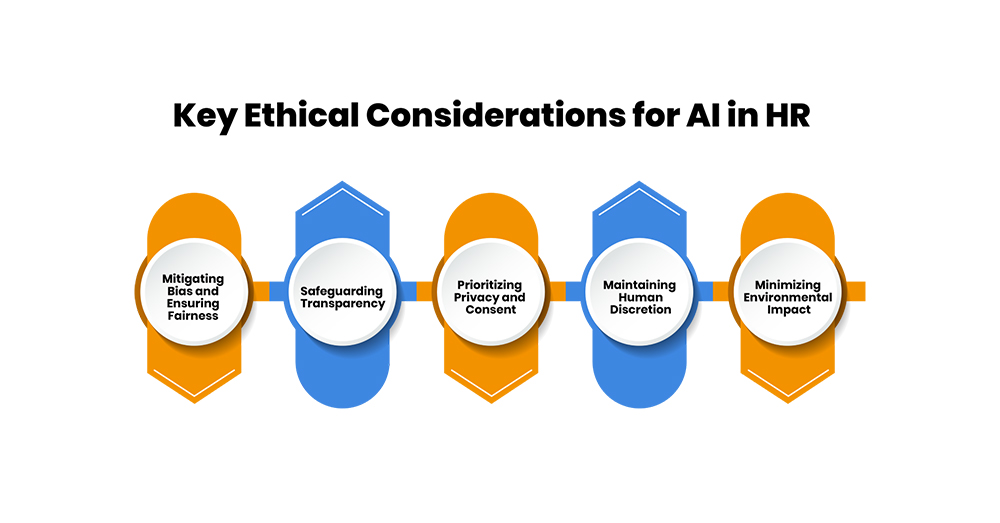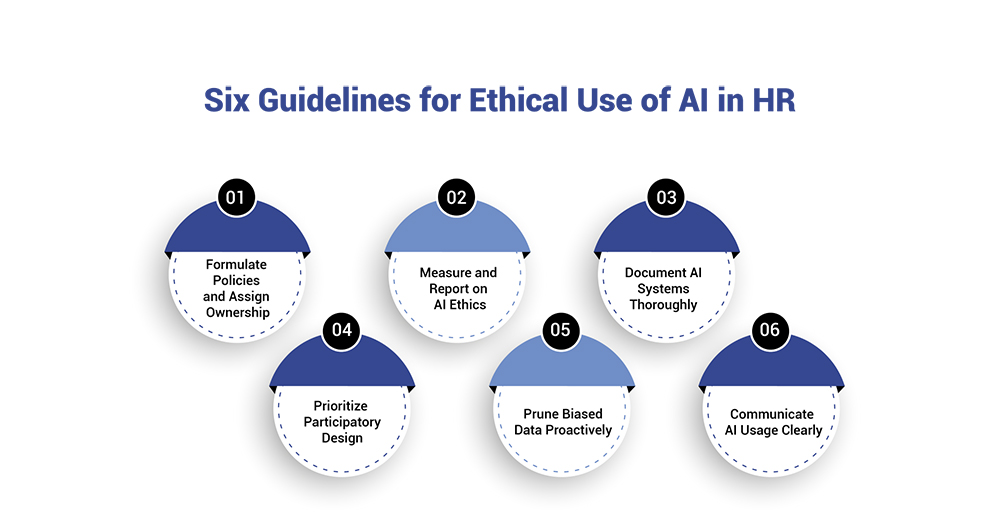
The meteoric rise of artificial intelligence (AI) marks a pivotal juncture across industries and functions. Its profound impact permeates the human resources (HR) domain as well, ushering in an era of enhanced efficiency, predictive insights, and unprecedented innovation. However, the breakneck pace of technological advancement also gives rise to pressing ethical questions that warrant thoughtful examination.
What ethical obligations does the integration of sophisticated AI systems within HRM processes entail? How can organizations responsibly harness the power of AI-driven HR tools?
As algorithms grow ubiquitous in determining career trajectories, performance evaluations, recruitment, and other intrinsic HR functions, notions of transparency, accountability, and fair representation rightfully take center stage.
This article delves into these ethical dimensions, providing actionable guidelines for promoting responsible and equitable AI adoption across the HR function.
Why AI Ethics Matters in HR
HR processes directly impact human lives and livelihoods. AI-based systems are therefore morally bound to the highest standards of transparency, fairness, and accountability. Failure to prioritize AI ethics risks compromising diversity efforts, infringing on privacy, perpetuating biases, and severely eroding trust. Vigilant assessment of algorithms, continuous tweaking to rectify biases, and comprehensive guidelines are indispensable to steer AI in HR.
Additionally, clear communication regarding AI usage and its underlying logic fosters trust in these evolving systems. As AI becomes enmeshed in essential workflows, maintaining human oversight and control is equally vital to uphold ethical rigor.
Ultimately, AI should serve to meaningfully augment human capabilities, not dominate decision-making arbitrarily. Its integration must align with and uplift organizational values related to integrity, diversity, equity, and transparency.
Key Ethical Considerations for AI in HR
Myriad factors warrant examination through an ethical lens when adopting AI in HR systems and processes. Let’s explore some pivotal areas:

-
Mitigating Bias and Ensuring Fairness
Algorithms fed skewed data risk perpetuating and amplifying existing societal biases related to gender, race, age, disability status, and other attributes. Continuous audits to detect discrimination, along with representational data sourcing, are therefore indispensable.
Metrics quantifying fairness should be integral elements of algorithm design, not an afterthought. HR professionals must measure outcomes across different demographic groups to pinpoint disparities and refine systems accordingly.
-
Safeguarding Transparency
When AI informs decisions impacting employees’ career trajectories, transparency regarding the rationale is imperative. “Black box” algorithms that provide no explainability arouse skepticism. HR professionals should opt for inherently interpretable AI models over inscrutable neural networks whenever viable.
Moreover, clear communication regarding AI usage, highlighting benefits while addressing concerns, fosters trust and informed consent. Transparency embedded within system design is equally crucial.
-
Prioritizing Privacy and Consent
Collection and application of potentially sensitive personnel data warrants stringent measures like anonymization and aggregation to protect confidentiality. Following “privacy by design” principles before gathering employee information prevents downstream issues.
Beyond legal obligations, obtaining meaningful consent before the utilization of data accrues ethical merit. Employees must comprehend specifically how AI systems analyze information to guide HR strategy decisions on performance, promotions, retention risk, and more.
-
Maintaining Human Discretion
Absolute reliance on AI usurps human accountability and judgment. While algorithms expedite HR processes like screening resumes, human discretion at pivotal junctures boosts contextual decision-making. AI should, therefore, serve primarily as an enhancing guide.
Establishing processes for HR professionals to review, validate, and override problematic AI recommendations preserves organizational values and equitability standards. Humans must remain at the helm of interpreting AI insights and not be substituted entirely.
-
Minimizing Environmental Impact
Developing and operating data-intensive AI systems involves substantial computing resources and energy, exacerbating climate change impacts. Prioritizing energy efficiency in HR analytics platforms is, therefore, an ethical obligation. Cloud computing, for instance, utilizes dynamically optimized infrastructure to minimize environmental footprints.
Additionally, AI workflows should integrate sustainability criteria wherever applicable. Greenhouse gas emission metrics could be included in supply chain analytics, for example. HR professionals have a unique opportunity to spearhead reductions in AI climate impacts across the broader organization.
Turning Principles into Practice: Guidelines for Ethical AI in HR
Transforming ethical ideals into tangible best practices requires concerted planning and effort. Here are six guidelines centered on governance, assessment, documentation, and communication to put responsible AI adoption into practice:

-
Formulate Policies and Assign Ownership
Develop comprehensive policies aligned with norms like accountability, transparency, and privacy, which were previously outlined. Disseminate them organization-wide post executive sign-off. Concurrently, cross-functional AI oversight teams will be appointed for continuous governance. Define procedures to evaluate AI systems before deployment and regularly thereafter.
-
Measure and Report on AI Ethics
Institute metrics focused specifically on ethical dimensions like fairness, accuracy, explainability, privacy, security, and accessibility. Set acceptable thresholds for these parameters and monitor them continually across all AI applications with robust audits. Widely circulate reports capturing trends on ethical scores.
-
Document AI Systems Thoroughly
Mandate thorough documentation of datasets, models, algorithms, and interfaces powering AI tools alongside metadata like creation timestamps and version histories. Follow standardized templates listing ethical issues addressed, limitations, and intended functionality. Such diligent documentation enables easier auditing and refinement.
-
Prioritize Participatory Design
Employ participatory design techniques that actively involve diverse stakeholders like HR professionals, technology teams, and employees in early scoping discussions when conceiving AI systems. Such collective prioritization of ethical criteria ultimately fosters greater trust and adoption. Sustained user feedback should dynamically inform iterations.
-
Prune Biased Data Proactively
Scrutinize underlying training data, powering AI algorithms to pinpoint and mitigate representation biases by pruning skewed examples and augmenting minority samples. Structuring HR data per ethics guidelines from the outset reduces downstream patching. Mine data specifically to address high-priority ethical risks within the organization.
-
Communicate AI Usage Clearly
Over-communication marks a worthwhile investment when introducing AI-powered HR tools. Create forums to highlight AI benefits while addressing anxieties transparently and seeking input across the workforce to incorporate in design choices. Underscore AI assists rather than replaces human capabilities. Sustained clarity nurtures ethical usage and builds trust.
Real-World Spotlights: AI Ethics in Action
Myriad organizations across sectors provide trailblazing examples of earnest engagement with AI ethics in policies and practices. Let us spotlight a few pioneering instances with tangible implications for the HR domain:
Salesforce
Salesforce established an Office of Ethical and Humane Use of Technology in 2020 to instill moral principles into product design and development. Its initial focus spanned facial recognition app ban, data transparency, and AI algorithmic fairness.
In 2023, Salesforce unveiled a toolbox named AI Guardrails intended to help other companies also navigate AI ethics. Centralized dashboards track metrics like data bias and algorithmic discrimination - critical pillars for ethical HR systems as well.
BASF
Chemical industry giant BASF constituted an independent external AI ethics advisory panel in 2021 comprising experts from academia and civil society. Each business division mandatorily consults this panel when deploying analytics tools.
Additionally, BASF devised an experimental methodology harnessing virtual humans to simulate and correct racial and gender bias in training datasets. Such ethical data testing holds great promise for HR as well.
The Road Ahead: Opportunities for HR on AI Ethics
The velocity of AI proliferation across business verticals shows no signs of abating. As executives contend with upskilling workforces to thrive alongside smart machines, they must equally prioritize governance frameworks ensuring AI’s ethical moorings.
HR leaders have a propitious opportunity here to chart the course for AI ethics within their organizations, in the process elevating employee trust and cross-functional coordination on responsible innovation. The moral arc of HR AI systems must consciously bend towards fairness, transparency, accountability, and human welfare.




